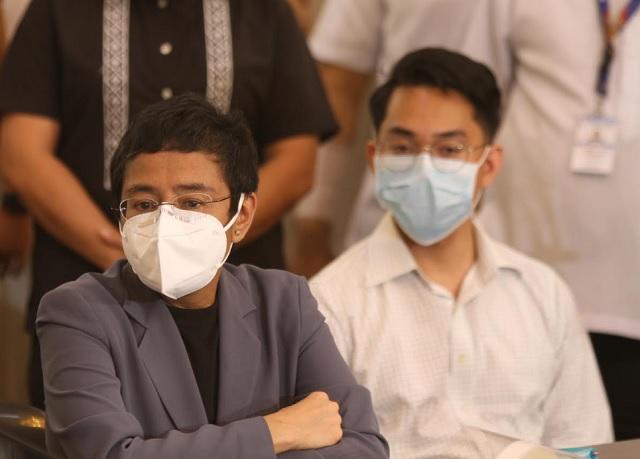CA upholds cyber libel conviction of journalists Ressa, Santos

The Court of Appeals (CA) has upheld the Manila Regional Trial Court's decision in 2020 to convict Rappler chief executive officer Maria Ressa and former Rappler researcher Rey Santos Jr. of cyber libel.
In its 41-page decision, the Fourth Division also modified the sentence meted by the RTC, pushing the prison sentence for the appellants from a minimum of six years and one day to a maximum of six years, eight months, and 20 days.
Associate Justice Roberto Quiroz penned the ruling.
“The appeal is denied. The Decision dated June 15, 2020, of the RTC Branch 46, Manila in Criminal Case No. R-MNL-19-01141-CR, finding accused appellants Reynaldo Santos Jr. and Maria Ressa guilty beyond reasonable doubt for violation of Section 4(c)4 of Republic Act No. 10175, otherwise known as the Cybercrime Prevention Act of 2012 is affirmed with modification insofar as both accused-appellants Reynaldo Santos Jr. and Maria Ressa are sentenced to suffer the indeterminate penalty of imprisonment ranging from 6 months, and one day of prision correccional in its minimum period, as a minimum, to 6 years, 8 months and 20 days of prision mayor in its minimum period, as maximum,” said the CA.
The case was in connection with the 2012 article Rappler published and that linked businessman Wilfredo Keng to human trafficking and drug smuggling, citing an intelligence report.
Rappler said it was reviewing the decision and said both Ressa and Santos would “avail of all legal remedies available to them, including elevating the decision to the Supreme Court for review.”
"[Ressa and Santos] disagree with the decision and their legal counsels are currently reviewing the decision. Both will avail of all legal remedies available to them, including elevating the decision to the Supreme Court for review," Rappler said in a statement.
Rappler said the Supreme Court should also look at the legality of the cyber libel law and the continuing criminalization of libel, especially in light of the freedom of expression and freedom of the press.
"The decision weakens the ability of journalists to hold power to account. We call on our media colleagues, our community, and other advocates of a free and independent press to be vocal and vigilant now more than ever," Rappler said.
"This is not just about Maria Ressa, Rey Santos Jr., or Rappler. What is ultimately at stake is our democracy whose strength rests on a media that is not threatened by the state nor intimidated by forces out to silence critical voices," Rappler added.
Government prosecutors indicted Ressa, Santos, and Rappler for cyber libel in January 2019 over an article published by the news site in 2012 that cites an "intelligence report" linking Keng, a businessman and the private complainant, to human trafficking and drug smuggling.
The Philippines' anti-cyber crime law would not be enacted until months after the article was published, but prosecutors alleged that a supposedly "republished" version of the story in February 2014 is covered by the law.
Rappler's lawyers, the Free Legal Assistance Group (FLAG), argued before the court that the "multiple republication" principle does not apply to online media. They also said the change made to the story in 2014 was merely a "spelling correction."
FLAG said both Ressa and Santos had "no participation" in the alleged republishing. The lawyers further argued that no evidence was shown to indicate that Rappler, Inc., a corporate entity, could be made liable under the charge.
In the 37-page ruling, however, the judge said the prosecution was able to establish the presence of all elements of cyber libel, including "actual malice," as she found that the article was "republished with reckless disregard of whether it was false or not." — DVM/NB, GMA News




